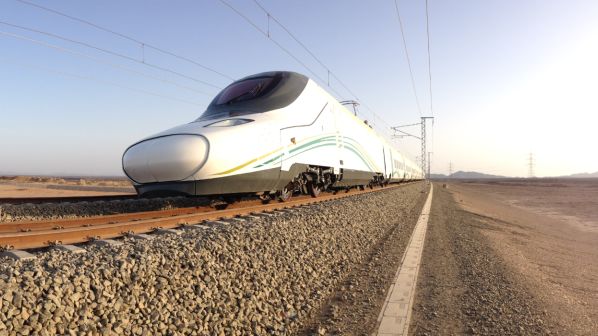Al Harbi told this week’s conference in Dubai that the service is reporting a 93% punctuality rate, which he says is a major achievement given the difficulties of operating a high-speed service in desert conditions. In total, SAR has operated more than 450 trips on the 320km/h line, which is served by a fleet of 35 300km/h Talgo 13-car T350 high-speed trains as well as an additional set for use by the Saudi royal family.
Speaking to IRJ, Al Harbi said the operation model for Mecca station is similar to an airport in the way it deals with high volumes of passengers. He said fast transit to the high-speed line in Jeddah via a 21-minute transfer from King Abdul Aziz International Airport, the principle entry point to Saudi Arabia for Hajj pilgrims, was a critical element in the railway’s viability.
“The service is a game changer,” he says. “There is no airport in Mecca city, so the only way to get there was by car or bus, which takes around five hours. We connect the two holy cities in less than two hours and the station is 5km from the holy mosque. People who are visiting the mosque are now starting to use the railway. And with our trains more than 80% occupied, it shows it was the right decision to build the line.”
SAR aims to significantly increase traffic on the line in 2019. In the first quarter of the year the operator was running 40 trips per week. This is increasing to 60 trips in the second quarter and then 100 in the third and fourth quarters. In 2020 the railway is planning to offer 200 trips. “In the long-term it could be up to 500,” Al Harbi says. “During the Hajj, there are up to 30 million visitors. It is like transporting an entire country.”

